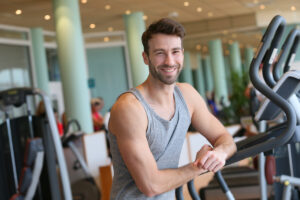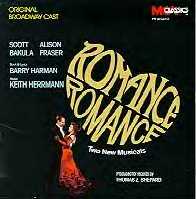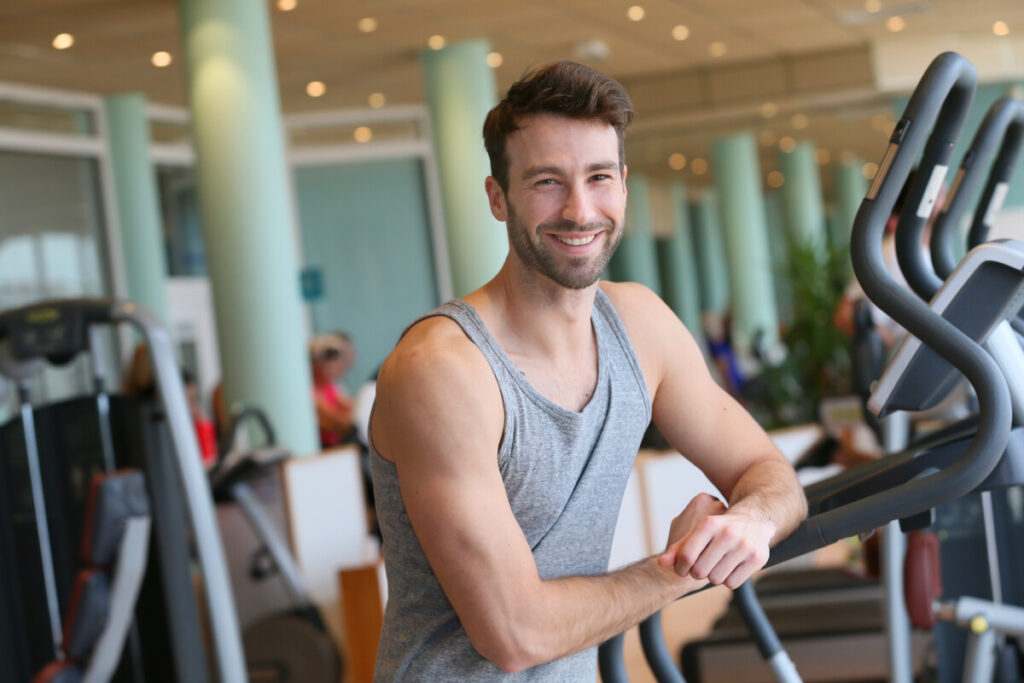
Gay Men and Gym Crushes: Cherish Your Romantic Notions
Recently, a friend of mine at lunch mentioned that someone at a nearby table looked like his “gym crush.” It turned out not to be, and my friend told another story, but his use of the terminology stayed with me, and got me thinking. That term – gym crush – was used in casual conversation, with him just knowing that I would know what he meant. As if to say, don’t we all have gym crushes? While not all gay men are regularly in a gym, it sure seems like it, based on observed crowds there, conversations, and the proliferation of gym-toned bodies among groups of gay men worldwide.
I’m starting to think we all have gym crushes. They can take many forms: the guy we “always” see at the gym, whose physique we admire and he provides “entertainment,” “eye candy,” inspiration, and maybe a bit of wistfulness that he is unattainable to mere mortals like ourselves. Maybe we’ve observed something about him that makes him feel unattainable to us, like he runs with a “better crowd,” or you’ve seen him be buddy-buddy with some A-list attitude queen, and you just know if he’s friends with that bitch, he wouldn’t give us the time of day. Maybe we’ve seen him there with a woman who is apparently his girlfriend. In our minds, we spin that story: maybe she drags her hot boyfriend to the “gay gym” so that he can get his ego stroked (if nothing else) by the gay guys gawking at him, which gives him swagger when he’s with her. The scenarios – both real and heavily embellished by imagination – are numerous.
More than once, I’ve had a client “process” in their therapy that they have fallen in love with their personal trainer. Or, process the disappointment that their gym crush “would never” go out with them (especially if they don’t even ask). What is it about the gym for gay men that causes fantasy, FOMO and frustration? Other articles I’ve written on gay men and the gym are here, and here. But now I’d like to explore what gym-related fantasies mean for the mental health and well-being of gay men.
Perception versus Reality
All of us have two sets of thought patterns, the moment-to-moment conscious reality, and the parallel process where fantasy, imagination, risk assessment, defenses, and unconscious wishes live. There is the reality of the external person, and there is our psychological understanding of them through the “internalized interject of the object,” which may or may not have any relation to reality.
Over the years of my career (29, in 2021, as a gay men’s specialist), I’ve had clients discuss their attraction to their personal trainers at the gym (I find that many guys who can afford private practice therapy also can afford personal trainers at the gym, among other professional services). The trainer-client relationship can have dynamics not unlike the therapist-client relationship. The therapist-client relationship can never involve sex, but the trainer-client relationship theoretically could, legally, but I think only rarely does. Yet there can certainly be romanticized or erotic “transference” in both cases – the feelings from the client to the provider, that each need their own perspective. In therapy, the analysis of transference is a classic Freudian psychodynamic therapy technique that is part of the process and can lend valuable information about the unconscious drives for behavior. In the gym, it’s lower-stakes overall, but still has meaning.
Clients have described how a gym trainer’s attention and focus on improving a client’s well-being by way of improving their physique and fitness can be experienced as a paternal/fraternal type of primal nurturance, which can lead to strong feelings in return. The unconditional support, encouragement, belief, challenge, and praise reaches us on important emotional levels. They help to address some of our deepest insecurities. In these ways, the trainer/therapist overlap can be significant, among other dynamics like resistance, approach/avoidance (my article on that is here), guilt, motivation, and perhaps some difficulties of when to start and when to stop service. When people help us out in the ways that are very important to us, our feelings back of gratitude and appreciation can become strong, into the romantic and even eroticized, by how their help makes us feel.
This can sometimes be awkward, such as if our feelings are not requited, such as if our trainer is “in a different league” in terms of gay male peers (his tricks and boyfriends are other fitness professionals, while we languish as mere mortals); he’s in a monogamous gay relationship; or, of course, he’s just straight (as most of my trainers have been, but obviously very cool with their majority gay male clientele). Clients have described this “loving from afar” scenario in any or all of those cases, leaving their feelings that are directed toward their internalized introject of their trainers in their minds as fantasy.
The idealized trainer Love Object represents both the reality that they are standing right there with us, sometimes in the intimate contact of “spotting” us for weight training safety, or even platonic physical contact, and the fantasy that they have no life outside the gym, they exist only as idealized Super Men that we long to be.
Together and Yet Apart
Or, maybe our gym crush is not a personal trainer, but simply a peer who goes to the same gym as we do. We might not know them at all, or have never spoken to them, but there is a familiarity and maybe even a camaraderie, of being fellow gym members.
An example: A number of years ago, I was on a vacation to New York City and visited a local gym in Manhattan’s Chelsea (gay) neighborhood. I bought a day pass. As I passed through a room with Lifecycles, a guy was riding one whom I had seen at my home gym in Los Angeles. He immediately recognized me and greeted me with a smile and hello, while he had never acknowledged me back in LA. And when we both were back in LA, he went back to not acknowledging me. But there was that brief, “Yo, we are part of the same gym community, and we recognize each other somewhere else” thing. For whatever reason, as peers at our home gym, there was that “distance,” but the NYC greeting was acknowledging that we were both a part of something. We were both so dedicated to gym attendance that we did it even on vacation.
My previous workout partner (with whom I worked out four times per week for four years, until he “left” me to work out with a younger, hotter guy whom he paid for “training” just to be near him) and I used to have nicknames for various hotties at the gym, whom we never met, but knew them somewhat from recognizing them over time. If one of us had to miss a workout, we would de-brief after: “Who was there? Well, Mr. Shirt was there! And he had on these tight new shorts. Woof. And Mr. Visa Goldcard was there, too, but had a limp from some kind of injury.” There was a vivid cast of characters, and the banter was funny and one more example of gay men’s apparent inherent gift for amusing repartee. Gay men at the gym can make up all kinds of attributes, histories, and traits about our gym crushes. It’s that reality/fantasy parallel at work.
Lessons from Broadway Musicals
 Broadway musicals explore this idea often; that we “live” both in the real world and in an alternate reality of our own perception. “Kiss of the Spider Woman” (Kander/Ebb) does this, about a gay man in jail who uses dissociation and fantasy as a means to cope, with the iconic (and gay diva icon) Chita Rivera originating the role of “Aurora” with a song called, “Where You Are”:
Broadway musicals explore this idea often; that we “live” both in the real world and in an alternate reality of our own perception. “Kiss of the Spider Woman” (Kander/Ebb) does this, about a gay man in jail who uses dissociation and fantasy as a means to cope, with the iconic (and gay diva icon) Chita Rivera originating the role of “Aurora” with a song called, “Where You Are”:
“You’ve got to learn how not to be
Where you are
The more you face reality, the more you scar
So close your eyes and you’ll become a movie star
Why must you stay where you are?” (John Kander/Fred Ebb, “Kiss of the Spider Woman”, 1992)
At the gym, all bets are on that blank canvas for our fantasies to thrive.
And isn’t that a theme for all of us? Sure, you could see the gym as a simple self-care habit that doesn’t have poetic meanings. But it can also mean something different: not just “exercise,” but the place where we work, consistently and somewhat arduously, to address the bridge between the reality that we are, and the vision of what we are becoming, such as being a guy with a couple of inches less on his belly and an inch more on each bicep. Or maybe it’s about bringing our heart rate, blood pressure, and health risks down, as we bring our size, strength, and stamina up.
And, sometimes, it’s about hating ourselves less and loving ourselves more (I wrote an entire musical about this, called “On the Boulevard,” which I hope entices theatrical producers sometime soon to fund a production; I’ve been working in my spare time to record a concept album of my entire score.) The gym process is about setting challenges for ourselves, working toward them, and facing what it means to have to really work to achieve a worthwhile goal. The process of meeting challenges at the gym can be a metaphor for meeting challenges in any other aspect of our lives (my article on that is here).
The balance of reality versus fantasy is something gay men are used to. Alan Downs, PhD, in his classic book, The Velvet Rage, describes how gay men growing up historically develop the “false self” as a coping strategy for being gay in a generally anti-gay world. The idea that if we “pass” as straight, we protect ourselves. The false self is a defense. And sometimes it’s the “false self” of blending in that’s the fantasy, and others it’s the fantasy of reaching a point in life where we can really be who we are, often times at college or later. If the gym is a place where fantasy and reality alternate and blend, it’s not like we haven’t been doing this already the whole time we were growing up.
 Risks and Benefits of the Gym Crush
Risks and Benefits of the Gym Crush
What are the risks and benefits of alternating between living, cognitively, in reality versus fantasy? What are the risks and benefits of having a gym crush?
It is what you make it. Too much reality, and we can become overwhelmed with stressful things in life. Too much fantasy, and we’re deluding ourselves and dwelling in unrealistic and impractical life choices for our own well-being. When we have a gym crush, it can be a fun flight-of-fancy that stimulates the imagination, and acts as a simulator for our feelings of lust, love, admiration, or imagination. But the risks are maybe that that distracts us from the reality of meeting, dating, and potentially life-partnering or marrying actual guys. And, sometimes, our gym crushes actually do become guys we are dating, if we just give them (and ourselves) a chance to meet them and get to know them as humans and not just objects. Sometimes, our Pinocchio fantasy becomes the Real-Live-Boy.
Maybe I’m over-analyzing all this, but as a long-term psychotherapist, it’s kind of an occupational hazard. Therapists are trained to see patterns, consider unconscious processes, and look for ways that our current thoughts and behavior contribute or detract from our quality of life and functioning, and how our thoughts/behavior could be deliberately and consciously changed to improve our life.
Fantasies, daydreams, and a fun use of our imagination can be important components in the varied arsenal of defenses against everyday stress, depression, or anxiety. They are part of the mental adaptive coping tools we might use to get by, among the many.
Back to Broadway
There was an entire Broadway musical about this. In 1988, a show consisting of two, one-act plays called “Romance/Romance” graced the stage, and it remains one of my favorites (it’s a show that basically made heartthrob actor Scott Bakula a star, just before his television hit, “Quantum Leap.”) The first act is a period comedy-of-errors about a man and a woman who take delight in disguising and fooling each other in the opposite social class. The second act is a modern setting, about two heterosexual couples, where in one, the husband from one pairing has an intense crush on the wife of the other. Spoiler alert: they don’t consummate it during their “summer share” weekend away from city life, but they almost do. It resolves with the wife telling her opposite couple crush that she appreciates the attention, but it’s better to stick with what they know. But she encourages him to cherish his “romantic notion” of the crush that is somehow helping him cope with the other stressors in his life, which need his attention more than her. It’s a highly sentimental dynamic, but for a romantic sap like me, I appreciated the themes the authors were asserting. (There was a gay version in London in 2019, here.)
While there can be some serious implications to our fantasies, so much of the time our imaginations and flights of fancy are harmless, emotional coping devices. Life would be boring without them.
So if you keep your gym crushes in the proper perspective, and allow them to guide you to explore your own feelings, and what those fantasies mean to you on a deeper level, in your relationship to yourself and others, you’re on the right track.
 You can show the show’s authors some love (and royalties) by getting the CD of the “Romance/Romance” musical, here:
You can show the show’s authors some love (and royalties) by getting the CD of the “Romance/Romance” musical, here:
As the character, Monica, says in the closing moments of the show’s final song:
Often when I feel the binds growing tight
I , too, take a flight of fancy
Picturing a dream as if were true
Helps people get through the night
And come out all right
We can light a spark
When the world is growing dark
Let your visions soar
That’s what dreams are for
Cherish your romantic notions.. (Hermann/Harman, “Romance/Romance”, 1988)
If we can learn to understand that being a grownup means somehow navigating between a child-like fantasy view of the world, and a an adult’s all-too-often cynical view of cold realities, we can find that space where we can cherish what our imagination gives us to work with. And Mr. Shirt never even has to know.

If you’d like support for making your dreams and goals a reality, consider therapy or coaching services from GayTherapyLA.com. Email Ken@GayTherapyLA.com, or call/text 310-339-5778 for more information on in-office sessions in Los Angeles/West Hollywood, or webcam sessions nationally or worldwide. We would be happy to help.


